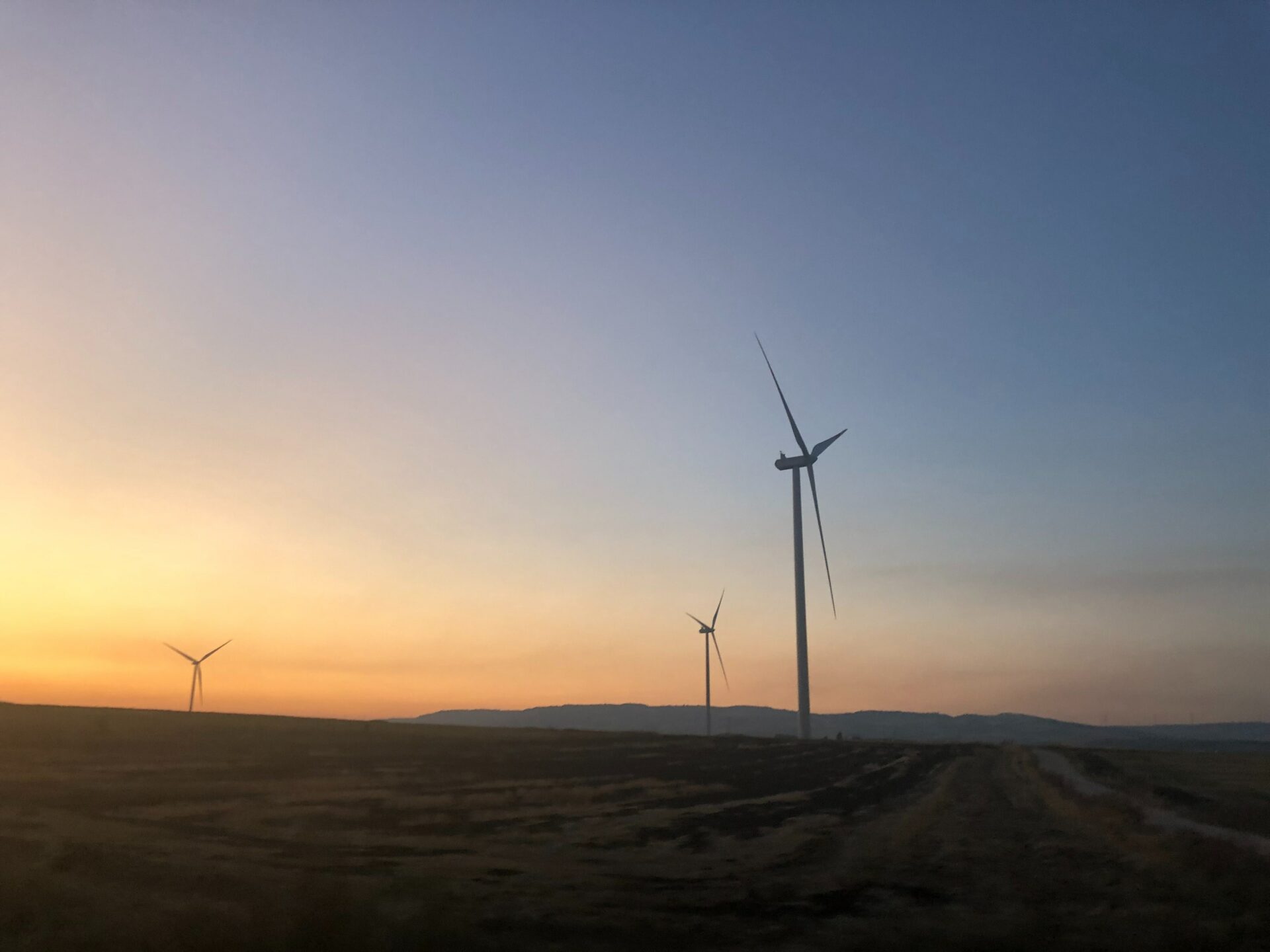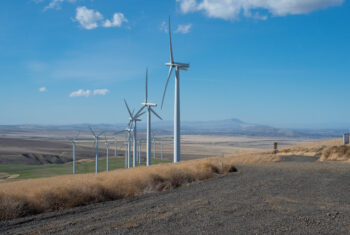Wind Farm Plan Adds Solar and Battery Energy Storage

FOR IMMEDIATE RELEASE
CONTACT: Javon Smith
509.490.4892
Wind farm plan adds solar and battery energy storage
Hybrid systems can help stabilize grids, increase efficiencies and lower power costs
August 31, 2020, Benton County, WA – Scout Clean Energy (“Scout”), a Quinbrook Infrastructure Partners portfolio company, today announced plans to add solar and battery storage components to a proposed wind farm that would be located just south of the Tri-Cities in Benton County, Washington.
The innovative development will combine wind energy, solar energy and battery energy storage in the same location - making more renewable energy available to customers during lower wind periods, and for short durations when the sun is not shining, and the wind is not blowing.
“Throughout the development process, our team has been diligently examining ways to structure the most efficient project that will maximize the local resources and also integrate the power into the local grid reliably” said Dave Kobus, Scout’s lead project manager for the Horse Heaven Wind Farm.
Project development began in late-2016 in the form of leasing, land acquisition and environmental surveys which was conducted by both Scout Clean Energy and wpd, a Portland, Oregon-based wind energy developer that holds lease agreements in Benton County. Scout recently acquired additional wind farm assets from wpd which will enable the company to scale up to 850 MW of combined wind, solar and battery power. Scout and wpd will continue to cooperate in the development of the Horse Heaven project.
“Scout has been monitoring power market interest for solar and storage technology along with wind, referred to as a hybrid facility. Recent improvements in technology have created the economic conditions needed to support demand for co-locating a wind-solar-battery storage project in the Horse Heaven Hills,” noted Kobus.
The project will seek permits to likely come online in phases:
- Phase 1: up to 350 megawatts (MW), anticipated to begin operations in 2022
- Phase 2: up to 500 MW, anticipated to begin operations by 2024.
The relative wind-solar-battery storage ratios may change depending on the preferences of an eventual purchaser of a power from the Horse Heaven energy facility. For example, additional solar-battery storage could be constructed with correspondingly fewer wind turbines. Regardless of the final configuration, Federal Aviation Administration & Department of Defense agreements will limit the project design to a maximum of 235 wind turbines.
Combining wind, solar and battery storage systems helps to mitigate one of the biggest challenges with renewable power: variability. Building these technologies at the same location can enhance grid reliability by providing electrical generation during more hours of the day, as well as the ability to store power for when it is needed most.
“As we have conducted community outreach over the last six months, we found that many residents have advanced knowledge of power systems and grid connectivity – which is really no surprise because the region is an energy mecca with thousands working in power generation. We have heard concerns about how renewable power such as wind affects the local grid and are excited to share these new plans which should alleviate some of those apprehensions”, Kobus noted.
In addition to the clean energy they generate, renewable energy facilities have the potential to stimulate the local economy by creating hundreds of construction jobs, full-time operational jobs, as well as millions of dollars in property tax revenue for the host community. In nearby Garfield County, a wind energy project with 20 turbines generated $2.7 million in property taxes in 2019 alone which substantially reduced the tax burden on other property owners, according to the County Assessor.
Support for the project is broad and includes Washington’s State Commissioner of Public Lands Hilary Franz. “This project is a big step forward in establishing technologies that will solidify Washington’s carbon-free power grid,” said Franz. “Projects like Scout’s highlight the deep well of renewable resources on Washington’s landscapes and the value of our workforce. A more diverse and robust power supply strengthens our economy, our communities, and our environment.”
“In the coming months, the company anticipates filing a Conditional Use Permit application with Benton County which incorporates the Washington State Environmental Policy Act (SEPA) review process” added Kobus.
The company shares information about the project through a website at www.horseheavenwindfarm.com and also via Facebook at https://www.facebook.com/HorseHeavenWindFarm.
###
About Scout Clean Energy
Scout Clean Energy is a leading US renewable energy developer, owner, and operator headquartered in Boulder, Colorado. Scout is developing a MW portfolio of over 5,000 MW of wind, solar and energy storage projects across 13 US states. Scout is an owner-operator portfolio company of Quinbrook Infrastructure Partners with expertise in all aspects of renewable power project development, permitting, power marketing, finance, construction, and asset management.
Made up of wind energy industry veterans who are making a difference in our world, our team’s work ethic is second to none. We identify problems, create solutions, and deliver them professionally to our customers, stakeholders, partners, and one another. We do the right thing when no one is looking because we are committed to our collective success and because we believe that our uncompromising integrity is key to the collaborative relationships that drive our business.
About Quinbrook Infrastructure Partners
Quinbrook Infrastructure Partners is a specialist investment manager focused exclusively on lower carbon and renewable energy infrastructure investment and operational asset management in the US, UK, and Australia. Quinbrook is led and managed by a senior team of power industry professionals who have collectively invested over US $8 billion in energy infrastructure assets since the early 1990's, representing a total enterprise value of US $28.7 billion or 19.5 GW of power supply capacity. Quinbrook's investment and asset management team has offices in Houston, London, Jersey, and the Gold Coast of Australia. Quinbrook has completed a diverse range of direct investments in both utility and distributed scale wind power, solar PV, peaking power and grid support, biomass, battery storage and ‘micro-grid’ installations in the US, UK, and Australia.


